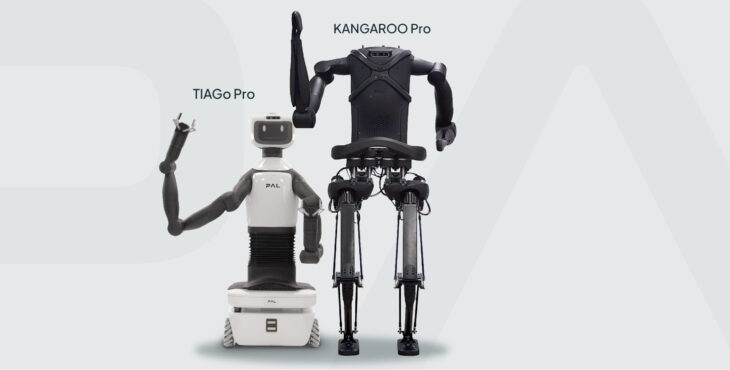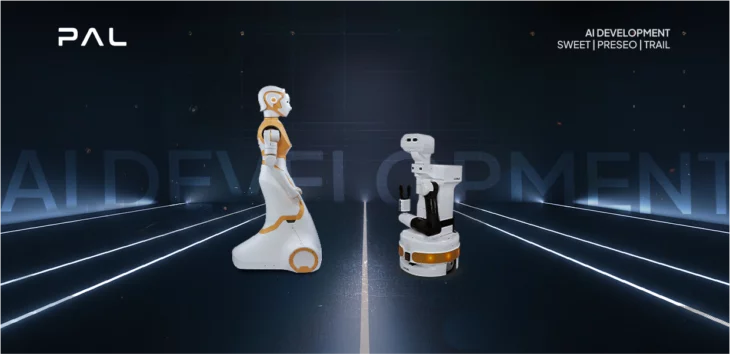Preparing TALOS humanoid for working at Airbus
Avoiding obstacles or interacting with a dynamic environment can still be a challenge for robots, especially for those which are complex, like legged humanoids. PAL Robotics is part of an ambitious EU-funded project called MEMMO that aims to solve this challenge by creating a new way of generating motions for the robots.
 MEMMO relies on the “Memory of Motion” concept. Putting it simply, the robot’s programming will incorporate “memories” of similar experiences for keeping the balance – some of which will be generated in the robot simulation to keep the platform safe.
MEMMO relies on the “Memory of Motion” concept. Putting it simply, the robot’s programming will incorporate “memories” of similar experiences for keeping the balance – some of which will be generated in the robot simulation to keep the platform safe.
When the robot faces an external disturbance, it will rely on the memories databank of its code to choose the most suitable motion to safely react in that specific scenario. The computation efficiency is key, as the robot needs to act in real time to effectively move and prevent itself from falling.
The project will put available its main results as open-source software packages, and a dataset of robot trajectories (in simulation) and robot sensor logs (measured by the robot during real experiments), so the whole robotics community can benefit from its attainments.
The “Memory of Motion” will be tested in three industrial demonstrators. One of them will put the TALOS robot from LAAS-CNRS, named Pyrène, inside an Airbus facility to help with specific tasks of the aircraft manufacturing process.
The bipedal humanoid is fully torque-controllable, which enables multi-contact locomotion and manipulation, and can handle up to 6 Kg payload. These features, amongst others, capacitate our humanoid robot TALOS for effectively manipulating tools and safely moving around a dynamic environment.
The other two demonstrators involve rehabilitation of paraplegic patients with exoskeletons developed by the partner WAN, and also the inspection of large engineering structures. The Memory of Motion will push forward the state of the art methods for controlling complex robots, helping arbitrary platforms cope with their articulated architecture and react to unexpected disturbances during locomotion or manipulation tasks.
The MEMMO consortium is formed by CNRS, Idiap, University of Edinburgh, Max Plank Institute for Intelligent Systems, Oxford Robotics Institute, Airbus, Wandercraft, APAJH, Costain and PAL Robotics. Read more about MEMMO and the project’s latest news at blog about robotic technology and development to learn even more about the world of robots.
- Industry 4.0


